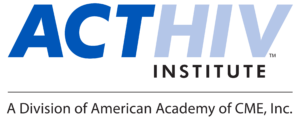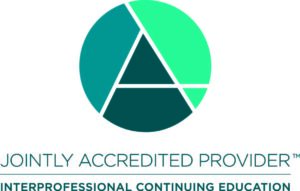Case Studies in Managing People with HIV Who Have Substance Use Disorder
|
Release Date: October 10, 2025 |
 |
Support for this activity has been made possible through educational grants from Gilead Sciences and Merck. |
Webinar Highlights:
Caring for individuals with both HIV and substance use disorders (SUDs) presents unique challenges for the care team. SUDs are common among persons with HIV (PWH) and can significantly affect treatment outcomes. While not all barriers to care can be resolved, this webinar will equip frontline HIV care teams with practical, actionable strategies to better integrate SUD care into everyday clinical practice. Through a combination of didactic teaching and real-world case discussions, this webinar will explore principles of harm reduction, strategies for multidisciplinary care, and best practices for managing opioid use disorder (OUD) in PWH.
Learning Objectives:
- Engage and assess PWH who have co-occurring substance use or SUD.
- Describe the current treatment landscape for OUD, including the use of methadone and buprenorphine.
- Formulate multidisciplinary care strategies and identify common barriers PWH may face when accessing SUD care.
What You Can Expect:
- Practical Application of the Science: Our expert faculty educators will guide you through this engaging and informative program, and offer suggestions on how you can apply best practices to patient care.
- Patient-Centered Care: Learn from faculty who are directly involved in patient care about strategies for providing compassionate care that addresses individuals’ unique needs and challenges.
- Team Focused: Explore how HIV clinicians from multiple professions are collaborating to optimize patient care.
By participating, you’ll not only enhance your professional development but also be better prepared to contribute as an HIV team member toward better healthcare outcomes for your patients.
Activity Faculty:
 |
|
|
Amelia Goff, MSN, FNP Nurse Practitioner and Assistant Professor in the Division of General Internal Medicine and Geriatrics, in the Section of Addiction Medicine at Oregon Health & Science University |
Wei-Teng Yang, MD, MPH Director of Infectious Diseases – Addiction Medicine Integration in the Division of Infectious Diseases, Perelman School of Medicine, University of Pennsylvania |
| Amelia Goff, MSN, FNP, is a Nurse Practitioner and Assistant Professor in the Division of General Internal Medicine and Geriatrics, in the Section of Addiction Medicine at Oregon Health & Science University (OHSU) in Portland, Oregon. Her interests include improving healthcare systems to increase access to evidence-based addiction care, including integration of harm reduction education and overdose prevention services. Before her role at OHSU, she worked in the Center for Infectious Disease at Boston Medical Center (BMC), primarily in HIV prevention care and working with patients with substance use disorders living with HIV or at risk for HIV. |
Wei-Teng Yang, MD, MPH, AAHIVS, FASAM, FACP, finished medical training in the Yale health system, infectious diseases fellowship training in University of Washington in Seattle, and addiction medicine fellowship training in Oregon Health and Science University in Portland, Oregon. He was a general internist who had a HIV primary care patient panel for four years before subspecialty training. His clinical and academic interests are in the integration of infectious diseases and addiction care, and implementation of care models. He has extensive experiences working with marginalized populations and views addiction as the root cause of many infectious diseases. In his role of the Director of Infectious Diseases – Addiction Medicine Integration in the Division of Infectious Diseases, Perelman School of Medicine, University of Pennsylvania, Dr. Yang sees inpatient consultations with the infectious diseases and addiction medicine teams and maintains an outpatient practice where he sees patients with concurrent infections and addiction. He is also involved in multidisciplinary work in infective endocarditis and xylazine associated wounds within the Penn health system. |
Target Audience:
Accreditation and Credit Designation

In support of improving patient care, American Academy of CME, Inc. is Jointly accredited by the Accreditation Council for Continuing Medical Education (ACCME), the Accreditation Council for Pharmacy Education (ACPE), and the American Nurses Credentialing Center (ANCC), to provide continuing education for the healthcare team.
Physicians:
American Academy of CME, Inc., designates this enduring material for a maximum of 1.0 AMA PRA Category 1 CreditsTM. Physicians should claim only the credit commensurate with the extent of their participation in the activity.
NPs and Nurses:
American Academy of CME, Inc., designates this educational activity for 1.0 ANCC contact hours (0.5 pharmacotherapeutic contact hours).
California
Provider approved by the California Board of Registered Nursing, Provider Number CEP16993 for 1.0 contact hours.
Physician Assistants:
American Academy of CME, Inc. has been authorized by the American Academy of PAs (AAPA) to award AAPA Category 1 CME credit for activities planned in accordance with AAPA CME Criteria. This activity is designated for 1.0 AAPA Category 1 CME credits. Approval is valid until October 10, 2026. PAs should only claim credit commensurate with the extent of their participation.
All other members of the care team will receive a certificate of participation.
Disclosures
According to the disclosure policy of the Academy, all faculty, planning committee members, editors, managers and other individuals who are in a position to control content are required to disclose any relationships with any ineligible company(ies). The existence of these relationships is not viewed as implying bias or decreasing the value of the activity. Clinical content has been reviewed for fair balance and scientific objectivity, and all of the relevant financial relationships listed for these individuals have been mitigated.
Faculty Educator/Planner Disclosures
Wei-Teng Yang: No relevant financial relationships to disclose.
Amelia Goff: No relevant financial relationships to disclose.
Planning Team Disclosures:
Jonathan Colasanti, MD; Courtney Fletcher, PharmD; Jose Gutierrez, PhD, FNP-BC; Margaret Hoffman-Terry, MD, FACP, AAHIVS; John JD Juchniewicz, MCIS, CHCP, FACEHP; H. Nina Kim, MD, MS; Natalie Kirkwood, RN, BSN, JD; Daiquiri Y. Robinson, Med, Matthew Young: No relevant financial relationships to disclose.
Christopher Evans, MD: Grant/Research Support: ViiV Healthcare
William R. Short, MD, MPH: Advisory Board/Consultant – ViiV Healthcare, Gilead Sciences; Grant/Research Support – Gilead Sciences
Sarah Smith, MHS, PA-C, AAHIVS: Advisory Board/Consultant: ViiV Healthcare, Gilead Sciences, Merck, Janssen*; Speaker’s Bureau: ViiV Healthcare, Gilead Sciences, Merck, Janssen*
*Relationship has ended
This activity does not include information about off-label uses of approved agents and/or investigational uses.
The opinions expressed in this accredited continuing education activity are those of the faculty, and do not represent those of the Academy/ACTHIV® Institute. This educational activity is intended as a supplement to existing knowledge, published information, and practice guidelines. Learners should appraise the information presented critically, and draw conclusions only after careful consideration of all available scientific information.
Implicit Bias
Implicit bias refers to unconscious attitudes and stereotypes that influence our thoughts, judgements, decisions, and actions without our awareness. Everyone is susceptible to implicit bias, even clinicians. In healthcare, implicit biases can have a significant impact on the quality of care an individual receives. These biases can be both favorable and unfavorable, and are activated involuntarily without an individual’s awareness or intentional control.
Studies have indicated that healthcare providers’ incorrect perceptions can impact providers’ communications and clinical decision-making contributing to disparities in clinical outcomes. Addressing implicit biases in healthcare is critical to improving health outcomes and promoting health equity for all patients. Patient-centered care can reduce the impact of implicit bias, by treating each patient as a unique individual who may or may not hold beliefs associated with their backgrounds and circumstances. In addition, recognizing implicit bias in one’s own practice using techniques such as self-reflection and mindful clinical decision-making can ensure more equitable and effective care to all patients.
Over the past several decades, cognitive science research has demonstrated human behavior, beliefs and attitudes are shaped by automatic and unconscious cognitive processes. The healthcare profession is devoting greater attention to how these automatic and unconscious processes impact care including: (1) preferential treatment toward or against specific patient populations causing healthcare inequities, (2) influence patient-provider communications leading to misunderstandings and mistrust, and (3) impact access to healthcare and affect treatment decisions resulting in misdiagnosis, delays in treatment and specialty referrals and poor pain management.
Considering one might have unconscious biases and exploring them may be uncomfortable because the very idea that they exist may conflict with how clinicians perceive themselves. It is only by becoming aware of one’s unconscious biases that members of the healthcare team can take steps to mitigate them to ensure all their patients are treated receive quality healthcare.For more information on strategies to reduce implicit bias, visit: https://www.ihi.org/library/blog/how-reduce-implicit-bias
Instructions on How to Receive Credit
There are no fees to participate in the activity. Participants must review the activity information including the learning objectives and disclosure statements, as well as the content of the activity. To receive CME/CE credit for your participation, please complete the post-assessment and program evaluation. Your certificate will be available for printing immediately.
Privacy and Contact
For more information about the American Academy of CME privacy policy, please access http://www.academycme.org/privacy.htm For any questions, please contact: [email protected].
Hardware/Software Requirements
This program should be viewed at a resolution of 1024 x 768 or higher using current versions of Microsoft Internet Explorer, Firefox, Chrome or Safari. A high-speed Internet connection is recommended.
Copyright
© 2025. This accredited continuing education activity is held as copyrighted © by American Academy of CME. Through this notice, permission is granted for its use for educational purposes only. These materials may not be used, in whole or in part, for any commercial purposes without prior permission in writing from the copyright owner(s).

